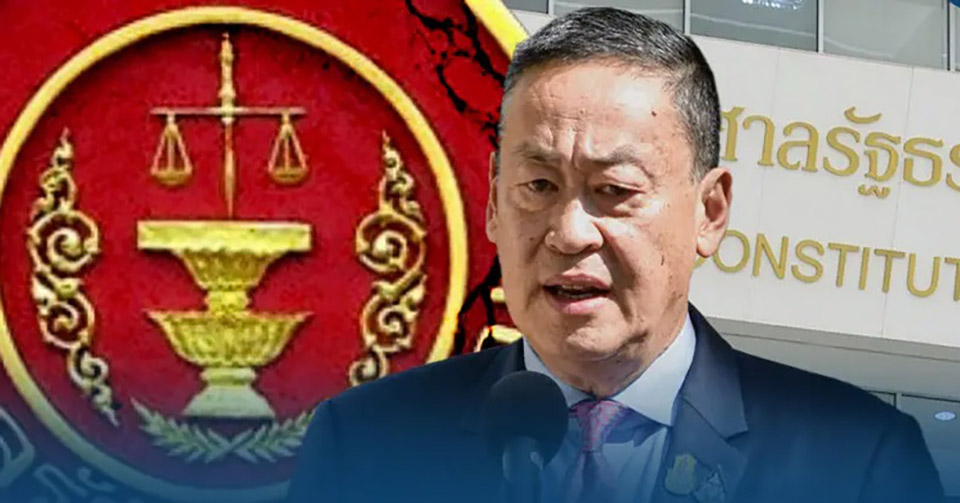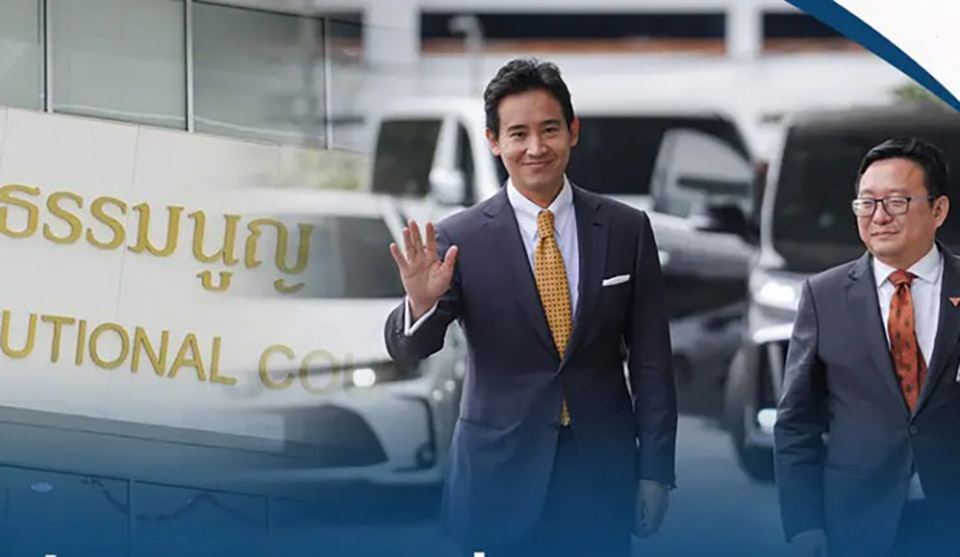
The Constitutional Court has considered three key political cases involving Prime Minister Srettha Thavisin, the leading opposition Move Forward Party (MFP), and the election process for a new Senate.
On the dismissal case of the Prime Minister Srettha, the court has ordered relevant parties to provide opinions, additional evidence within 15 days and has scheduled the next hearing for July 10.
The case against him followed a complaint by 40 senators alleging that he breached the constitution by appointing Phichit Chuenban once convicted as PM’s Office Minister.
A second case that could lead to the dissolution of the reformist Move Forward Party is scheduled for the next court hearing on July 3. This case originates from an Election Commission complaint alleging that the MFP violated the law by campaigning for the reform of the royal insult law.

Regarding the ongoing selection of a new 200-member Senate, the court unanimously rules that organic act on the election of senators does not contradict the constitution, allowing national senate elections on June 26 to proceed.
Dr. Somprawin Manprasert, First Executive Vice President and Chief Strategy Officer at the Siam Commercial Bank commented on the current political events, suggesting they may impact the overall economy. However, the crucial issue is the uncertainty in political policy affecting the government’s strategies, which in turn affects economic policies.
Amid global uncertainty, this will increase uncertainty in the Thai economy even further. It will undermine investors’ and business partners’ confidence in Thailand, causing them to seek out other countries with more stable policies. This will negatively impact investment, which is a key driver of the Thai economy’s growth, he said. (TNA)








